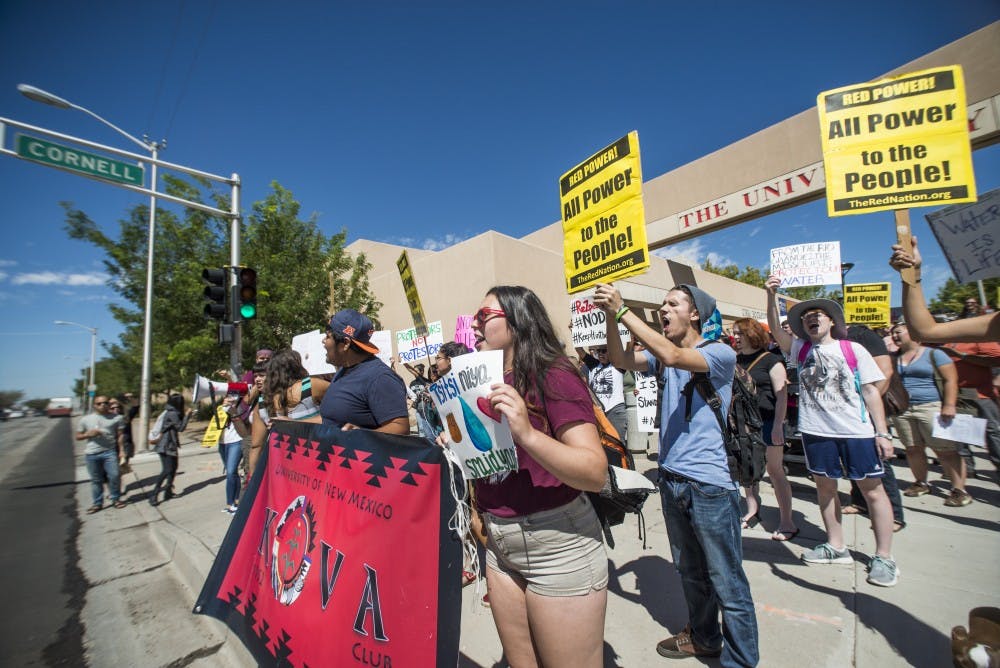Few things in life can radically impact how an individual treats another more than politics.
Friends, family and coworkers will seemingly transform into strangers when they passionately defend their own political views, spewing harsh and cold words to those who oppose them.
This is one of the reasons many households and workplaces do not allow politics to be discussed at all.
These rules, however, do not hold true in social media or in public outside of homes among family and strangers alike.
According to a Pew Research Center report made on October 25th, 2016, “Nearly one-third of social media users (31 percent) say they have changed their settings in order to see fewer posts from someone in their feed because of something related to politics, while 27 percent have blocked or unfriended someone for that reason.”
So when surrounded by friends, family members and strangers — who can become enemies at any moment with the right words — are we doomed to walk on eggshells to avoid conflict?
Not necessarily. While not common enough, rare acts of humanity can and do emerge in the most unlikely places, including on the political battlefield.
On social media I recently conversed with a passionate Trump supporter who was nothing but polite and open-minded in everything she spoke about in a controversial post, acknowledging others’ opinions and beliefs while supporting her own without ripping her opponents’ views to shreds.
While attending an anti-Trump protest, I was offered gloves repeatedly when my hands were red and dry from the cold weather. In both cases, women who held radically different political views from each other put these views aside to act humanely in the toughest of political climates.
These instances are far from common. The Pew report also stated that “64 percent say their online encounters with people on the opposite side of the political spectrum leave them feeling as if they have even less in common than they thought — although 29 percent say they end these discussions feeling that they have more in common than they might have anticipated.”
How can 64 percent of people go into a political conversation with a friend and come out feeling like strangers? The answer in the cases I have viewed seems to stem from how individuals communicate with each other, on social media and off.
When impassioned about a political issue, everything around an individual melts away and they can stop viewing who they are speaking to as a friend or, in cases of strangers, a human being at all.
Get content from The Daily Lobo delivered to your inbox
They forget that this is a person who is very much like themselves, that they are someone whose thoughts and feelings matter. This may be due to how politicians rally supporters, the way parties both major and minor create propaganda to rip one another apart.
It could also be due to many factors and outlets both online and publicly that allow people the ability to channel their frustrations collectively without fear of being singled out individually.
After all, when online you have the barrier social media provides, not having to directly face the one you’re opposing and, in the midst of a crowd of impassioned people, you have just as much anonymity as the person standing next to you.
That being said, how much more rare and valuable is it to step out of these carefully constructed comfort zones and act as an individual? To act with a sense of kindness and empathy, even if it isn't required?
Even if the actions of both these women affected only me, they had a more powerful impact than hundreds of negative political encounters.
When I log onto social media and see a post that I disagree with, be it on a political or moral level, I find myself stopping and remembering a woman who listened to those who opposed her view and refrained from name-calling and bickering.
Just the same, I am sure when I pass any gathering of people, be it a protest for political reasons or a rally, I’m certain I’ll remember the red gloves offered to me on a cold windy day.
Nichole Harwood is a news reporter at the Daily Lobo. She can be reached at news@dailylobo.com or on Twitter @Nolidoli1. The views presented in this column are her own.






